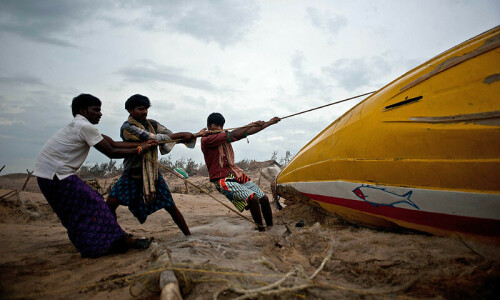DESPITE optimistic talk of the “Asian Century”, many countries in the region are struggling with important economic and political challenges — and/or have become entangled in seemingly intractable historical disputes.
Myanmar stands out as a country which — despite many challenges, especially as regards violence and discrimination against Rohingya Muslim — is continuing work on an impressive political and economic transformation.
It is in fact a triple transition as Myanmar prepares for milestone elections in autumn 2015, conducts ceasefire talks with ethnic groups and works on important constitutional changes ahead of next year’s polls.
With the economy growing by six to seven per cent a year and labour costs still low, foreign investments are pouring in. Myanmar’s current chairmanship of the Association of Southeast Asian Nations provides President Thein Sein with a further opportunity to boost the country’s regional and international profile.
However, increasing ethnic violence and civil unrest, especially in Rakhine state, among Buddhist groups and the stateless Rohingya Muslims, is a big, dark spot on Myanmar’s credentials. International criticism of the government’s failure to stem the violence is increasing, with 46 countries, including the United States recently joining forces with the EU at the United Nations Human Rights Council to express serious concern over the situation of the Rohingya and other minorities in Rakhine State.
The resolution also asked for the extension of the mandate of the Special Rapporteur on Myanmar for one more year and urged an opening of the Office of the High Commissioner for Human Rights in the country.
Additionally, there is concern that while growth rates are high, Myanmar remains one of Southeast Asia’s most impoverished countries. Foreign partners worry that any slowdown in reform efforts in the run up to elections will make it even more difficult for the government to ensure inclusive and sustainable growth.
On the bright side, attracted by a growing consumer base and low-cost workforce, foreign investors are lining up to establish a foothold in Myanmar. A foreign investment law was passed in 2012 allowing some overseas firms to fully own ventures.
In a bid to further open up, a telecommunications law was passed last year and foreign energy companies have recently been given rights to explore offshore Myanmar. The country is also slowly opening up its banking sector, with foreign banks expected to be allowed to operate independently by the end of the year. About 35 international banks already have representative offices in Myanmar.
The next stage of political reform looks set to be especially challenging. The government is hoping for progress toward peace through the signature of a Nationwide Ceasefire Agreement with ethnic armed groups.
The government has also embarked on the difficult task of amending the constitution, including article 59(f), which debars opposition leader Aung San Suu Kyi from becoming president because of the foreign citizenship of her children and late husband.The process is proving to be more complex than anticipated, however, prompting fears the reform process is running out of steam.
The census currently under way in the country — which also asks sensitive questions about race and ethnicity that human rights groups have repeatedly warned puts vulnerable populations such as the Rohingya (regarded by the authorities as illegal Bengali immigrants) at additional risk, is another complication.
Ethnic minorities, which together make up about 40 per cent of Myanmar’s population, contend that they were not properly consulted ahead of the census, which requires respondents to identify themselves as one of 135 ethnic groups.
Myanmar joined Asean in 1997 and was to take the Asean chairmanship in 2006 but was passed over amid international pressure due to its poor human rights record. Although the country now shines in the global spotlight, as current Asean chair, Myanmar faces a tough regional agenda, with its partners and the international community anxious about the country’s ability to host the multiple high-level meetings scheduled for the year and to keep Asean on course to meet its 2015 end-target for establishing a frontier-free economic community. Myanmar is also current chair of the Asean Intergovernmental Commission on Human Rights (AICHR), and as such is under strong pressure from increasingly vocal Asean civil society groups to adhere to the human rights commitments which are part of the Asean Charter.
Myanmar has come a long way in a very short time. Visionaries in the government and the region say there is no reason the country cannot fulfil its long-term ambition to become a regional powerhouse. To make the dream a reality, however, Myanmar will have to learn that economic growth and progress must be shared by all its people, human rights must be respected — and there must be a place in the country for all ethnic groups, whatever their religion.
—The writer is Dawn’s correspondent in Brussels.













































